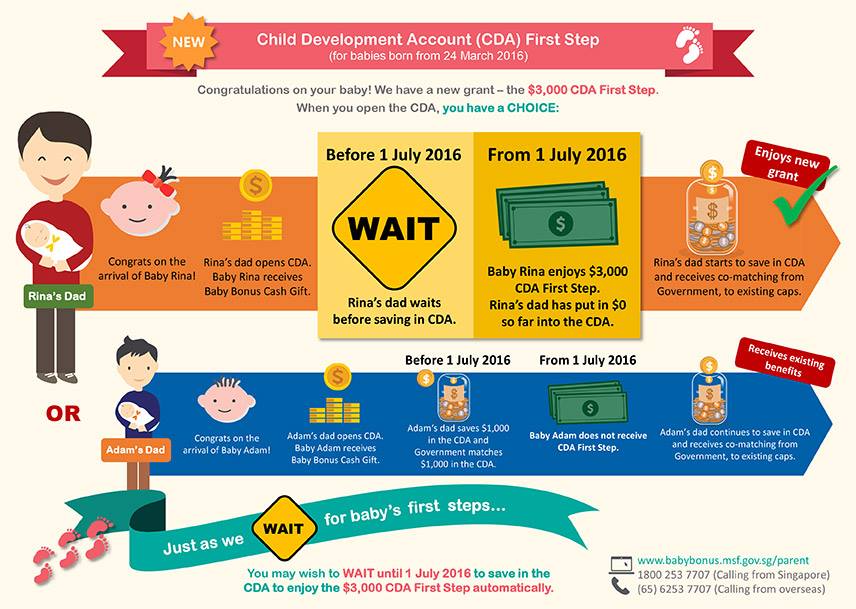What a difference a year makes.
Basking in the glow of SG50, and tapping on the reserves built up in their term of government; Deputy Prime Minister (DPM) Tharman Shanmugaratnam announced one of Singapore’s most socially progressive budgets last year.
No one expected this year’s budget to be as generous, since this is the first Budget by the new government and it cannot tap on past years' surpluses or the reserves.
This is also Finance Minister Heng Swee Keat's maiden budget. Despite being a 'business-minded' budget, Heng did sneak in a couple of progressive social policies, targeting needy young families.
Every school, a good school. Every kid, a smart kid
As Education Minister, Heng popularised the phrase ‘every school, a good school’. Through policy shifts such as: the scrapping of the school ranking system, the doing away with the announcement of top scorers in national exams, and the transferring of principals from top 'brand name' schools to neighbourhood schools, Heng tried to level Singapore’s education system.
Now empowered with a greater ambit as Finance Minister, Heng has sought to give children from needy families access to greater resources even before they begin formal primary education.
KidSTART, a program that will cost more than $20 million and benefit over 1,000 children, aims to give children up to six years old increased access to learning, developmental and health support.
Children from needy families often end up as victims of circumstance. Parents,wealthy or poor, want the best for their children. Yet a child from a needy household faces a much more challenging battle to succeed in Singapore’s competitive education system. Wealthier parents, have the time to research, identify and enrol their child in preschools and extra-curricula activities. These parents may also be better versed with existing policies and able to maximise the government grants and subsidies available.
Needy parents on the other hand could be struggling to make ends meet, working long and inflexible hours, and often juggling multiple jobs. Simply put, their 'bandwidth' is taxed at a much greater level. They simply do not have any excess bandwidth or resources to make the appropriate choices for their child.
This scheme, the details of which have yet to be announced, will certainly not negate all the benefits currently enjoyed by children from wealthier families but will go someway in 'leveling' the playing field.
Born on budget day? Huat ah!
As part of the baby bonus scheme the government matches, up to a ceiling, parents' contributions to their child’s development account (CDA). The ceiling varies according to the number of children a family has - the more children the higher the ceiling.
As of yesterday, all newborn Singaporean babies will receive an upfront deposit of $3000, from the government, into their CDA - the First Step Grant (FSG).
This would count towards the matching contribution provided by the government. Currently around 40% of CDA holders do deposit enough to receive the full government matching contribution, and 5% do not even contribute to their CDA.
 Source; Tan Chuan Jin Facebook
Source; Tan Chuan Jin Facebook
Though well intentioned, the CDA scheme in its original guise disproportionately benefited wealthier parents. In 2015, the gross monthly income for the 20th percentile was slightly under $2000. For parents, earning around or below the 20th percentile, to receive the maximum matching contribution for their first born they would have to deposit three months’ wages into their child’s CDA. For their fourth or subsequent child that number rises to nine months’ wages. This is simply not feasible for most low income earners.
The FSG coupled with the KidSTART program provides needy parents with additional resources to invest in their child’s formative years.
I hope that these schemes extend to children born out of wedlock. Regardless of society’s and our personal moral convictions; I believe that no child should unfairly disadvantaged by their parents’ decisions.
Let’s start the race together
Even as an idealist, I must concede that relative poverty is an inevitable part of society. Regardless of how egalitarian a society maybe, someone will almost always have a little less than the rest. But perpetual poverty, like wealth, should never be a lottery of birth.
Inter-generational poverty is a problem that plagues many countries, and Singapore is no exception. Education has always been one of the greatest levers of social mobility, especially in Singapore. Singapore is very proud of its meritocratic system but for it to be equitable players have to start at roughly the same position. If someone starts way behind the rest, he is very unlikely to win the race.
Schemes such as the FSG and KidSTART, help to nudge children from needy families closer towards the pack and give them a fighting chance at winning.
Top image via kifo Flickr
If you like what you read, follow us on Facebook and Twitter to get the latest updates.
If you like what you read, follow us on Facebook, Instagram, Twitter and Telegram to get the latest updates.
